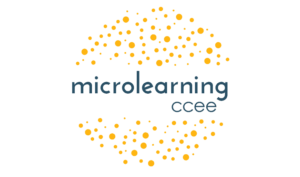Curated Microlearning Resources for You.
Below is a list of all current opportunities to improve your craft at your own pace through short, curated videos featuring seasoned educators offering practical wisdom for real-life scenarios and situations.

Recent Resources
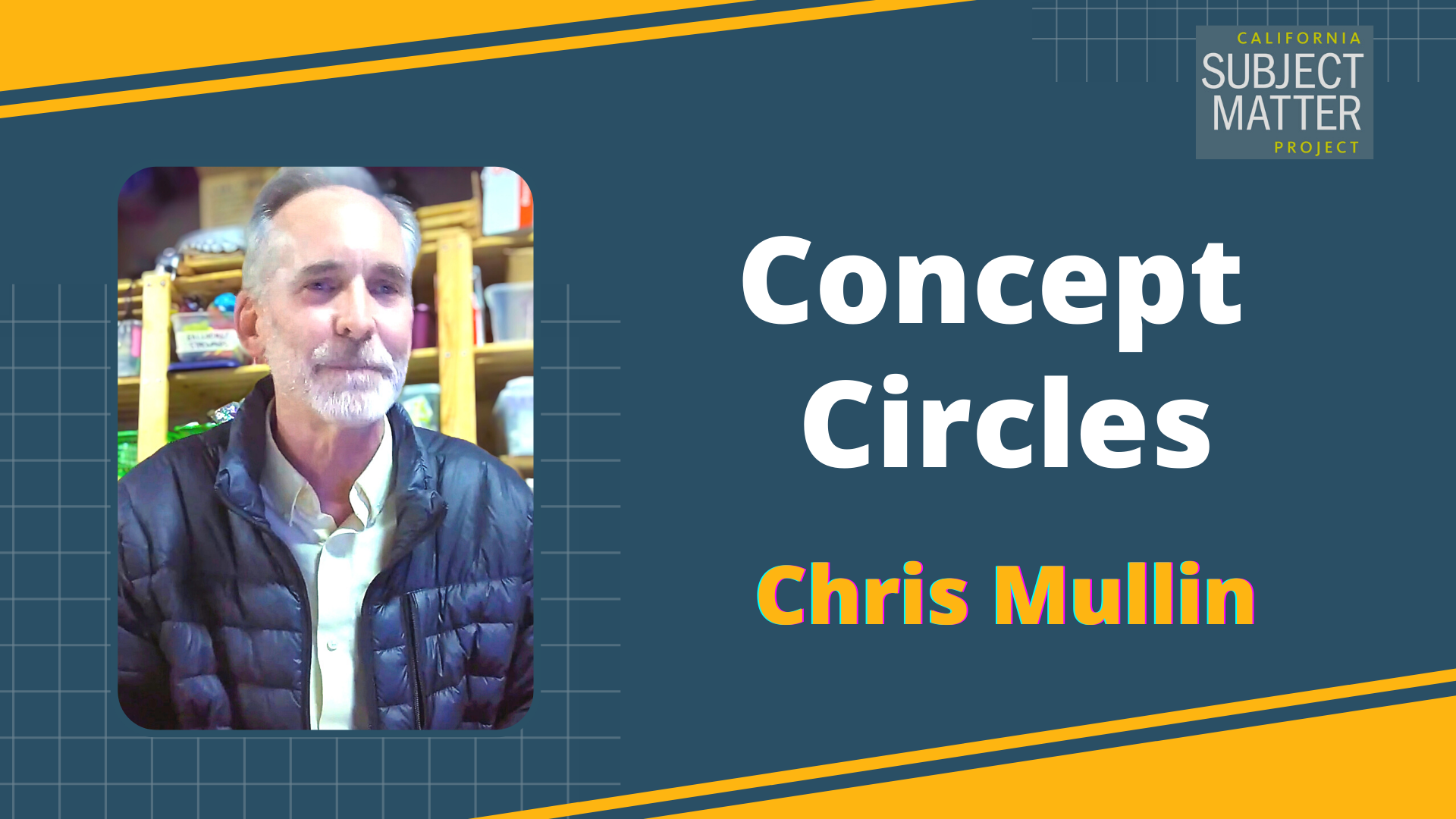
Concept Circles
Chris Mullin, high school history teacher in the Santa Ynez Valley Union High School District, tells us how to leverage the “Concept Circles” activity to help students communicate their understanding of key words and concepts, and how their selected terms relate to a larger theme.
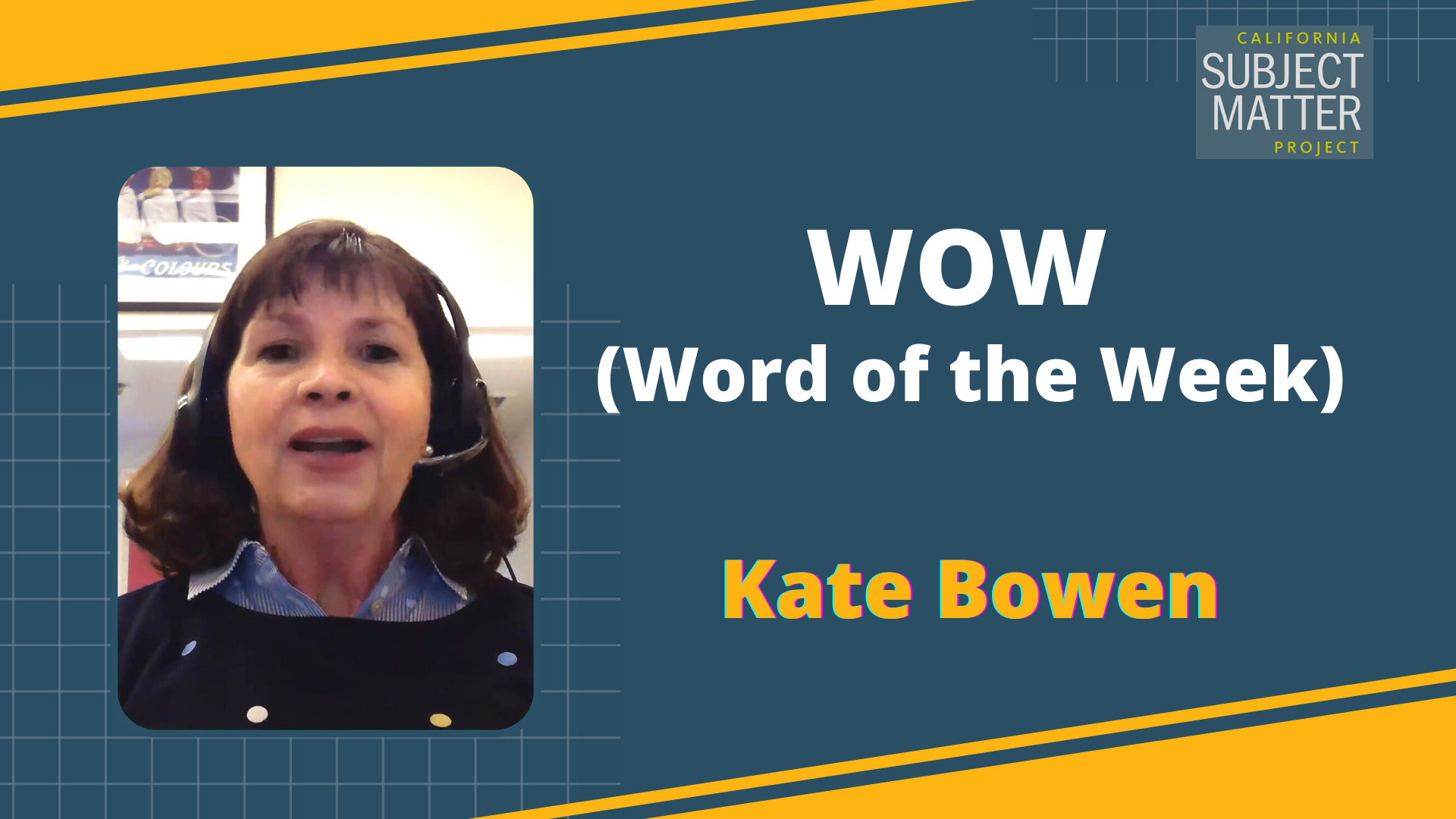
WOW (Word of the Week)
Kate Bowen, retired elementary school teacher for the Davis Joint Unified School District, tells us how to use the “WOW (Word of the Week)” activity to channel students’ creativity in learning new vocabulary and developing their writing skills.
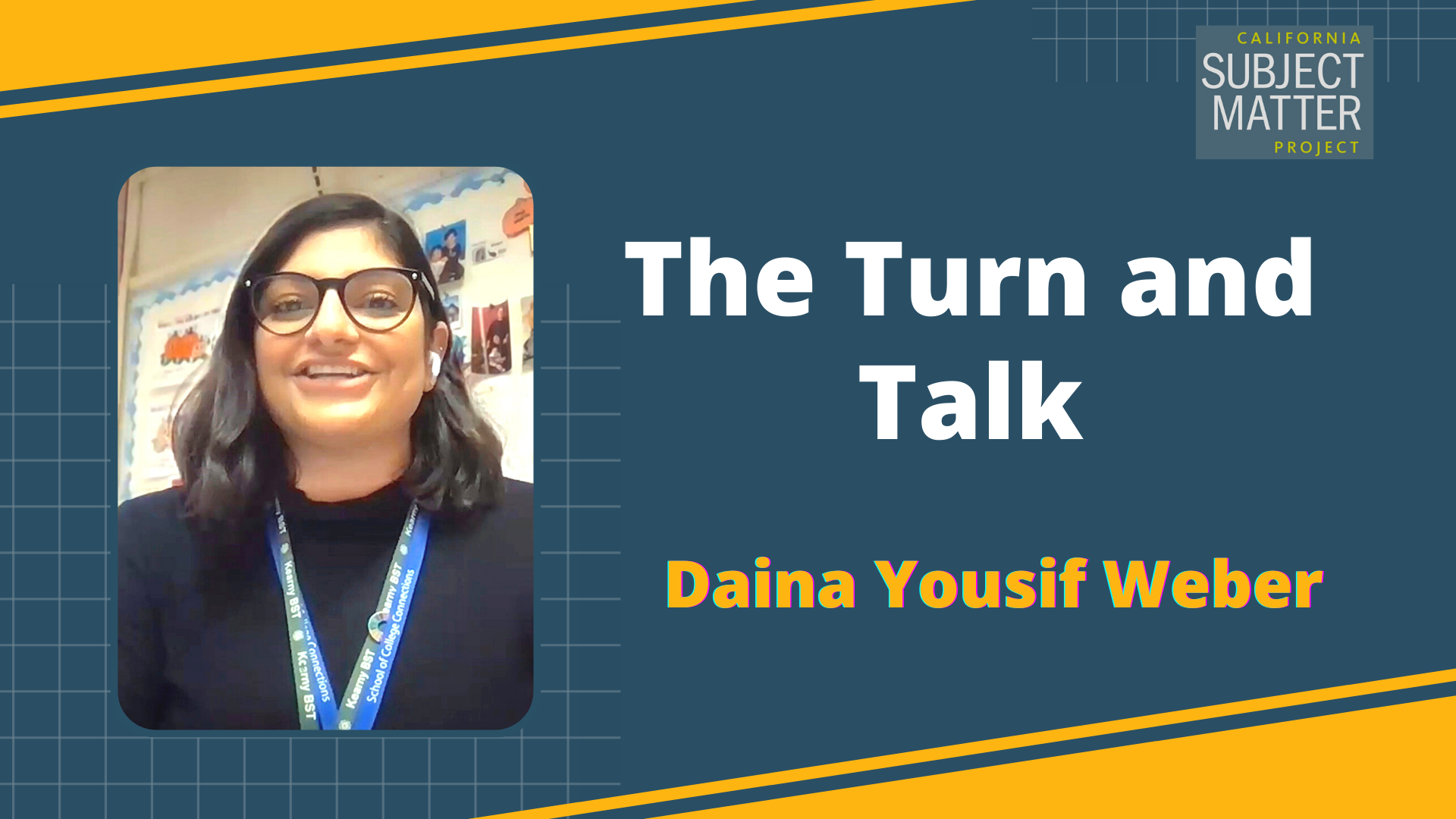
The Turn and Talk
Daina Yousif Weber, English and AVID teacher in San Diego Unified School District, tells us how to apply the “Turn and Talk” strategy to empower students to make their own meaning by exploring open-ended questions, sharing their thoughts and perspectives, and building upon each other’s ideas.
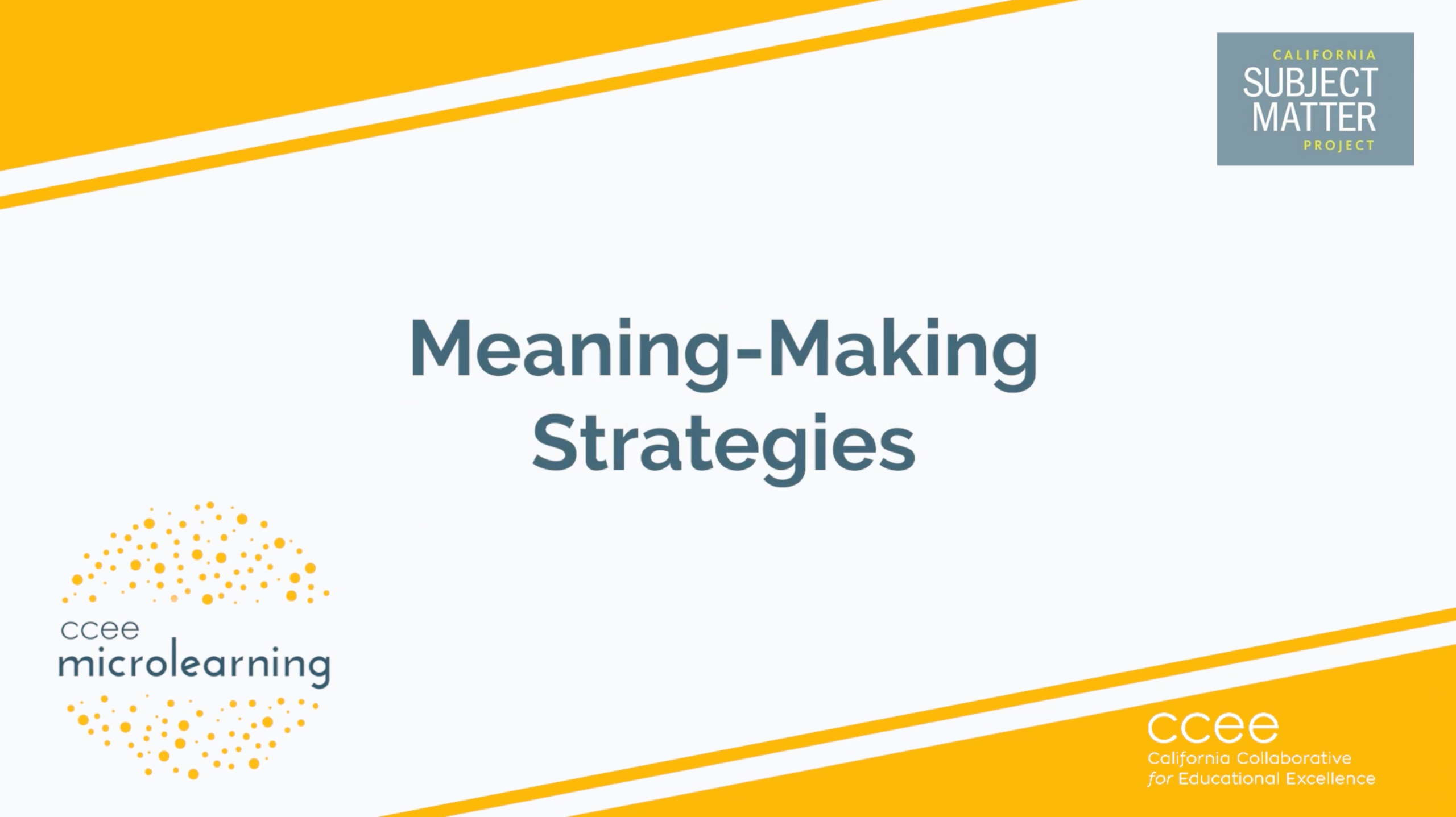
Meaning-Making
Experts from the California Subject Matter Project (CSMP) share 3 meaning-making strategies you can use to engage students in your classroom.

Formative Assessment 301 – Part 4: Supporting Teachers As They Involve Students and Their Peers
In order to gather information that is useful for making better educational decisions, evidence of student understanding or learning must be collected. Watch this video for a primer on assessments and learning acceleration.

Formative Assessment 301 – Part 3: Suporting Teachers with Formative Assessment During or After Instruction
In this module, school leaders will consider how to examine lesson learning intentions and how effective discussions, tasks, and activities can be engineered to elicit evidence of student learning. The goal is to help school leaders support the implementation and change process around these practices in their schools and districts.

Formative Assessment 301 – Part 2: High Quality Discussion with Teachers
In this module, we are going to discuss three tools and resources that can be used to move teacher practice forward with respect to formative assessment processes: 1) Student Work Analysis Protocol; 2) Formative Assessment Discussion Tool for School Leaders; and 3) Professional learning about the art of conferring with students.

Formative Assessment 301 – Part 1: Supporting Formative Assessment in the Classroom
This first module begins with an overview of the formative assessment process and serves as an advanced introduction to supporting high-quality formative assessment processes in the classrooms.

Formative Assessment 301 – Introduction
Welcome to the Introduction to Micro-Course 3. This module will provide you with the information you will need to understand the intended audience, guiding questions, organization, and proposed uses of the four modules in Micro-Course 3 as well as how Micro-Course 3 relates to the modules in Micro-Course 1 and 2. This micro-course focuses on providing school leaders with strategies to support teachers focused on learning acceleration using formative assessment processes in the classroom. These micro-courses were created by the California Collaborative for Educational Excellence and the Center for Assessment.
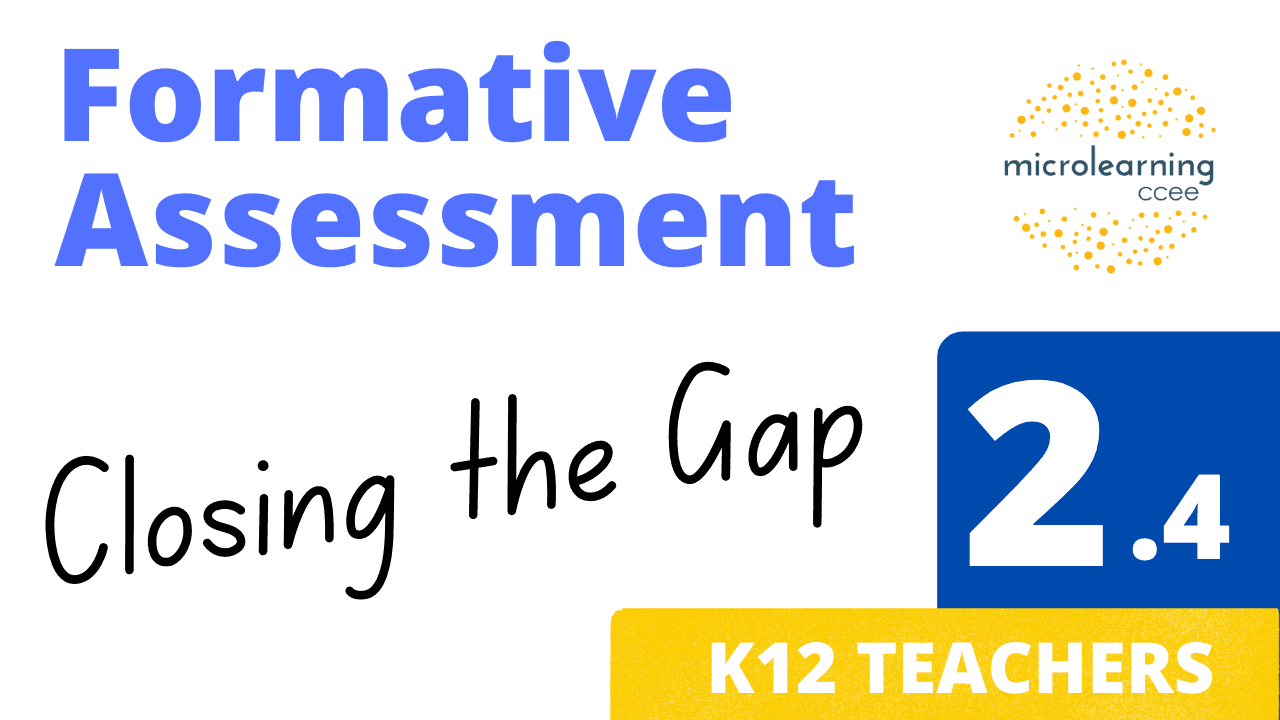
Formative Assessment 201 – Part 4: Closing the Gap
This module focuses on the last two aspects of Dylan Wiliam’s framework related to embedded formative assessment strategies: the role of the learner in activating their own learning and peers as learning resources. Modules 1-3 focus on the other parts of the framework.

Formative Assessment 201 – Part 3: How to Get There
This module focuses on the third aspect of Dylan Wiliam’s framework related to embedded formative assessment strategies: how to get there. This module discusses the role of the teacher in identifying students’ strengths and needs to monitor and adapt instruction in support of providing formative feedback to move learning forward. Modules 1, 2, and 4 focus on the other parts of the framework.

Formative Assessment 201 – Part 2: Where the Learner is Going
This module focuses on the first aspect of Dylan Wiliam’s framework related to embedded formative assessment strategies: where the learner is going. We discuss the role of the teacher, peer, and learner in the process of clarifying, sharing, and understanding learning intentions and success criteria. Subsequent modules focus on the other part of the framework.

Formative Assessment 201 – Part 1: Learning Acceleration (Advanced)
The first module of this micro-course begins with an overview of the formative assessment process and serves as an advanced introduction to key concepts for educators.

Formative Assessment 201 – Introduction (Advanced)
Welcome to the Introduction to Micro-Course 2. This module will provide you with the information you will need to understand the intended audience, guiding questions, organization, and proposed uses of the four modules in Micro-Course 2 as well as how Micro-Course 2 relates to the modules in Micro-Course 1. Both micro-courses focus on learning acceleration using formative assessment processes in the classroom and were created by the California Collaborative for Educational Excellence and the Center for Assessment.
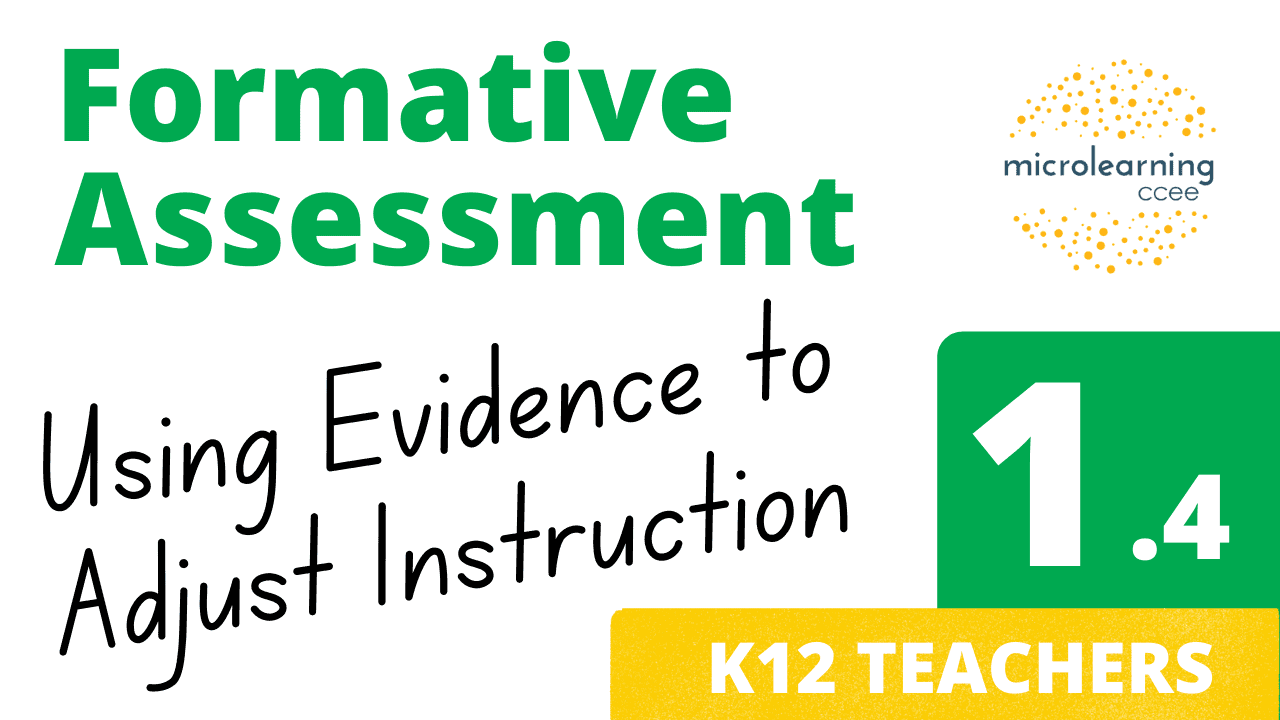
Formative Assessment 101 – Part 4: Using Evidence of Learning to Adjust Instruction
Key to the conversation in this module is the concept that formative assessment is a process that is inseparable from instruction. Formative assessment processes are the bridge between teaching and learning.
